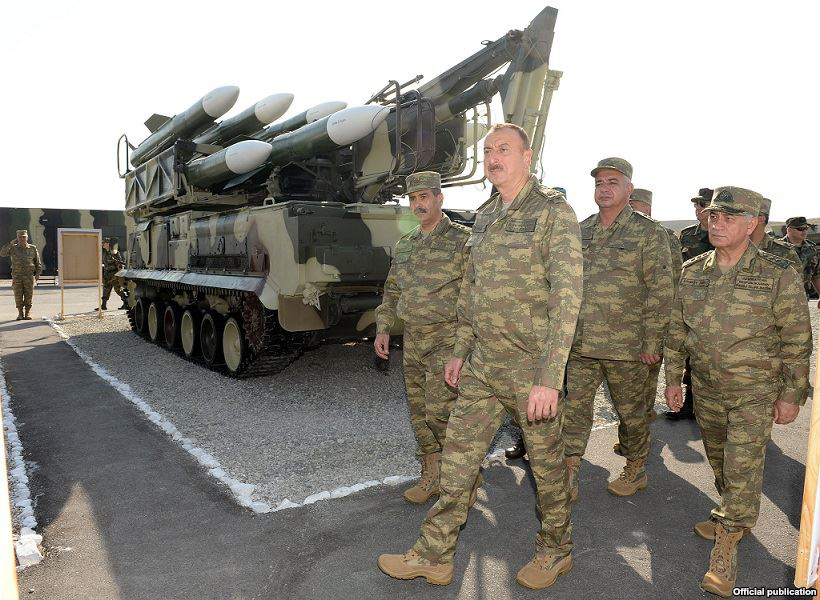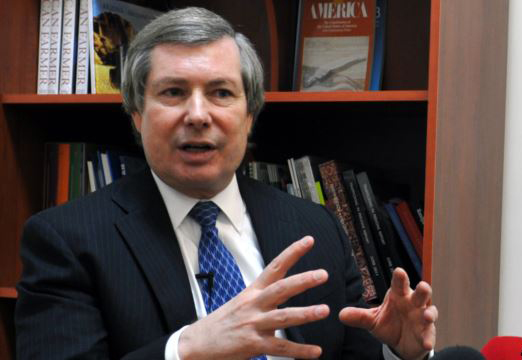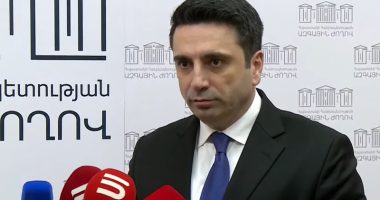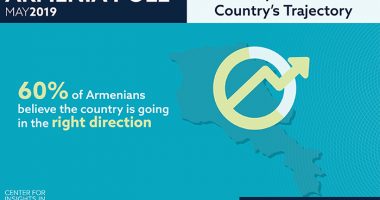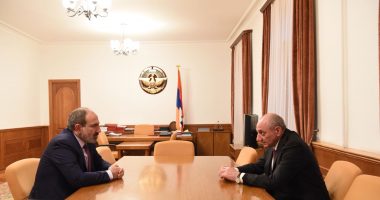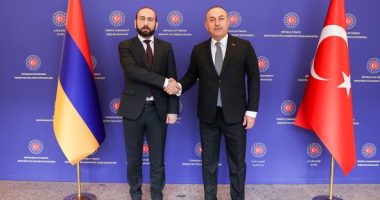BAKU — Azerbaijan’s President Ilham Aliyev has again denounced the U.S., Russian and French mediators and the broader international community for not helping his country regain control over Nagorno-Karabakh and Armenian-controlled territories surrounding it.
Speaking after military exercises held by the Azerbaijani army on Thursday, he also renewed his threats to reconquer those lands by force.
Aliyev claimed that the world has been pursuing a “policy of double standards” towards Azerbaijan in the Karabakh conflict. “Unfortunately, the mediators dealing with this issue, the OSCE Minsk Group, are doing more to step up confidence-building measures than to resolve the conflict peacefully,” he told military personnel involved in the drills. They are keen to prevent another Armenian-Azerbaijani war, rather than “restore justice,” he said.
Aliyev warned that Baku is being left with no choice but to continue its military buildup and prepare for another war with the Armenians. “I am confident that Azerbaijan will restore its territorial integrity,” he said in a speech posted on his website. “We can do that even today.
“We will stick to negotiations for the time being. But I want to once again state that we are running out of patience and that the Azerbaijani army is ready to carry out its commander-in-chief’s orders.”
Aliyev has threatened a military solution to the Karabakh conflict throughout his more than decade-long rule that has seen massive arms acquisitions. These threats are regularly dismissed by the Armenian side. The latter insists that the buildup has not given the Azerbaijani army a decisive advantage over the armed forces of Armenia and Nagorno-Karabakh.
Photographs released by the Azerbaijani presidential press office showed a uniform-clad Aliyev inspecting tanks, artillery systems and other Russian-made military hardware put on display at the unspecified site of the exercises. Aliyev watched the drills together with Defense Minister Zakir Hasanov and other top security officials.
Both Aliyev and other Azerbaijani officials have repeatedly accused the mediators in the past of doing little to broker the kind of a settlement that is desired by Baku. James Warlick, the U.S. co-chair of the Minsk Group, was subjected to particularly harsh criticism in early May. The Azerbaijani Foreign Ministry accused him of pro-Armenian bias and said it will seek his replacement by another American diplomat.
Peace proposals made by the three mediating proposals over the past decade call for the liberation of virtually all seven Azerbaijani districts around Karabakh that are fully or partly controlled by Karabakh Armenian forces. But they do not seem to envisage Karabakh’s return under Azerbaijani rule. Under the mediators’ Basic Principles, Karabakh’s final status would be determined by the territory’s predominantly Armenian population in a future referendum.
Both Baku and Yerevan have said that this peace blueprint is largely acceptable to them. But they continue to disagree on some of its crucial details. Aliyev and his Armenian counterpart Serzh Sarkisian came very close to achieving a breakthrough at a meeting in Kazan, Russia three years ago. According to the Armenian side and some Western diplomats, Aliyev scuttled a deal with last-minute demands rejected by Sarkisian.

